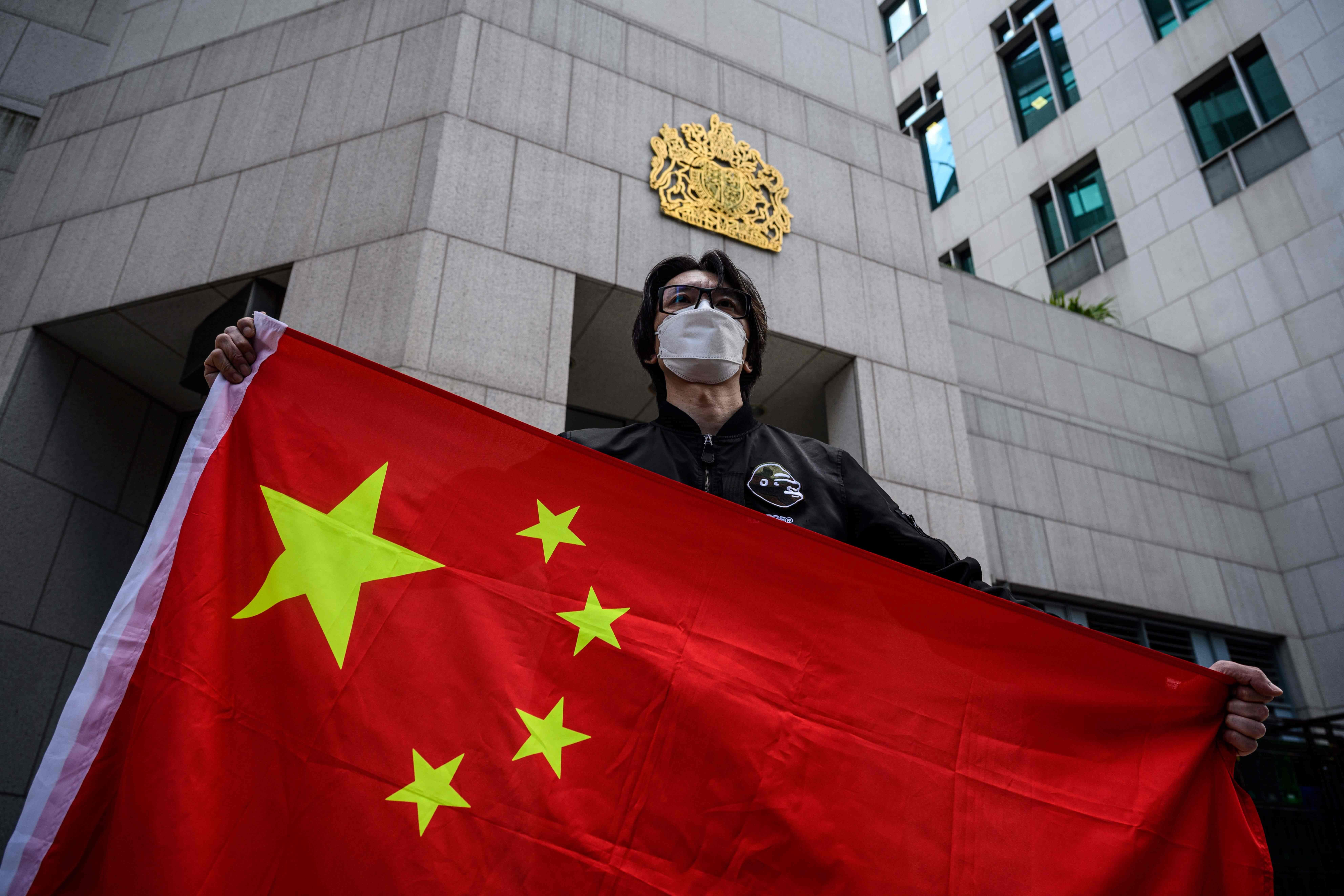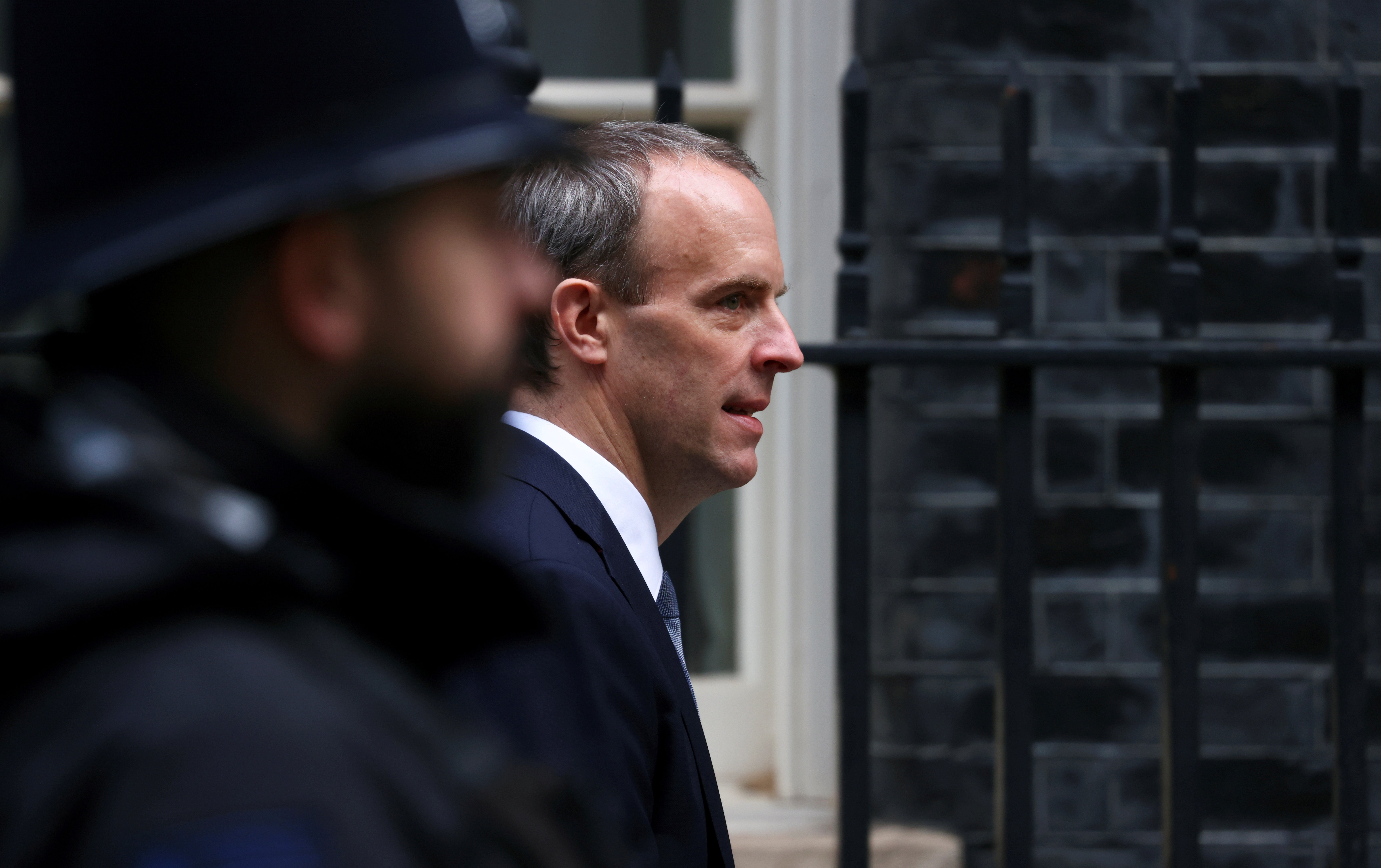Raab offers to visit Beijing to calm tensions over Hong Kong
‘Door of diplomacy open’ says foreign secretary amid clash over national security law

Your support helps us to tell the story
From reproductive rights to climate change to Big Tech, The Independent is on the ground when the story is developing. Whether it's investigating the financials of Elon Musk's pro-Trump PAC or producing our latest documentary, 'The A Word', which shines a light on the American women fighting for reproductive rights, we know how important it is to parse out the facts from the messaging.
At such a critical moment in US history, we need reporters on the ground. Your donation allows us to keep sending journalists to speak to both sides of the story.
The Independent is trusted by Americans across the entire political spectrum. And unlike many other quality news outlets, we choose not to lock Americans out of our reporting and analysis with paywalls. We believe quality journalism should be available to everyone, paid for by those who can afford it.
Your support makes all the difference.Dominic Raab has offered to visit Beijing in an effort to calm tensions between UK and Chinese authorities over what critics say has been an erosion of rights and freedoms in Hong Kong.
Relations between London and Beijing have soured since last summer when China imposed a national security law on the city following months of protests.
Activists said the move was used to stifle dissent and curb media freedom and other liberties that were promised to the former British colony when it returned to Chinese rule in 1997.
“I’ve offered to go to Beijing,” Mr Raab said during a call organised by the Conservative Friends of the Chinese to mark the Lunar New Year.
“For me it’s not more difficult to talk when we have a challenge. That’s the time the foreign secretary must engage in dialogue.
“We will always have the door of diplomacy open and will always look for the positives.”
While the UK considers China’s actions in the semi-autonomous financial hub to be in violation of the 1997 Sino-British Joint Declaration, Mr Raab said “there is always a course on which we can chart back”.
His remarks, first reported by the South China Morning Post, have not been publicly acknowledged by Beijing.
The Independent has contacted the UK foreign office for comment.
The Chinese government maintains that Hong Kong's rights and freedoms, guaranteed under the handover agreement, remain intact.

The law punishes anything China considers subversion, secession, terrorism or collusion with foreign forces with up to life in prison. Some songs and slogans have been banned and anything that may be considered political activity in schools is outlawed.
Since the law was introduced, many prominent pro-democracy activists and politicians have been arrested.
Others have fled to the UK, where the government has offered residency and work permits and a pathway to citizenship for holders of the Hong Kong BN(O) passport – another source of tension between the two countries.
Nearly 5,000 Hong Kong citizens have already applied to live, work and study in Britain using the new visa scheme, which only opened on 31 January, The Times reported.
But China has described the visa as a violation of international law and claimed it interferes with their internal affairs.
On Monday, Mr Raab will risk further souring relations with Beijing when he will raise the issue of China’s treatment of the Uighur minority with the UN Human Rights Council, describing allegations of abuses against those living in Xinjiang as “beyond the pale”.
He will tell the council: “The reported abuses – which include torture, forced labour and forced sterilisation of women – are extreme and they are extensive. They are taking place on an industrial scale.”
Subscribe to Independent Premium to bookmark this article
Want to bookmark your favourite articles and stories to read or reference later? Start your Independent Premium subscription today.

Join our commenting forum
Join thought-provoking conversations, follow other Independent readers and see their replies
Comments